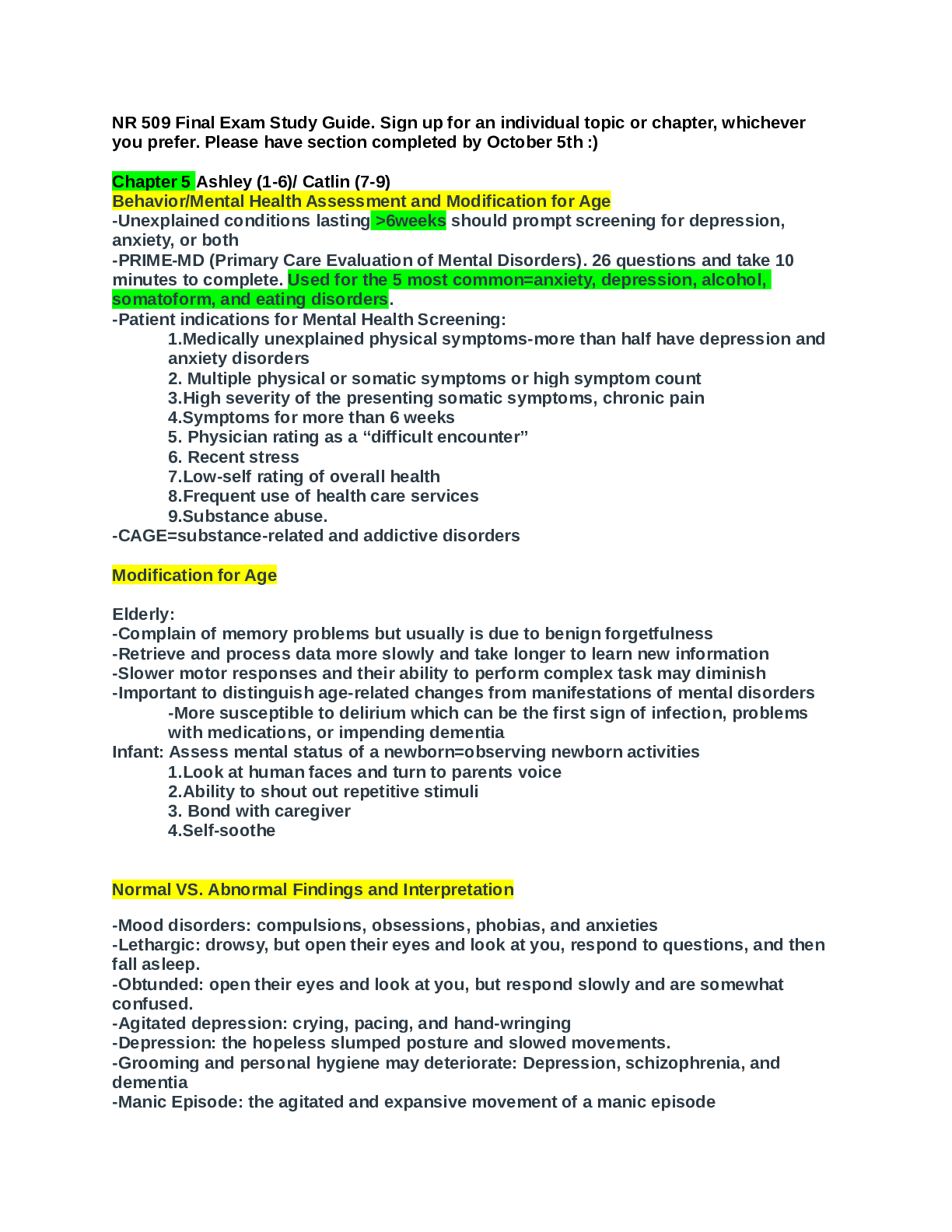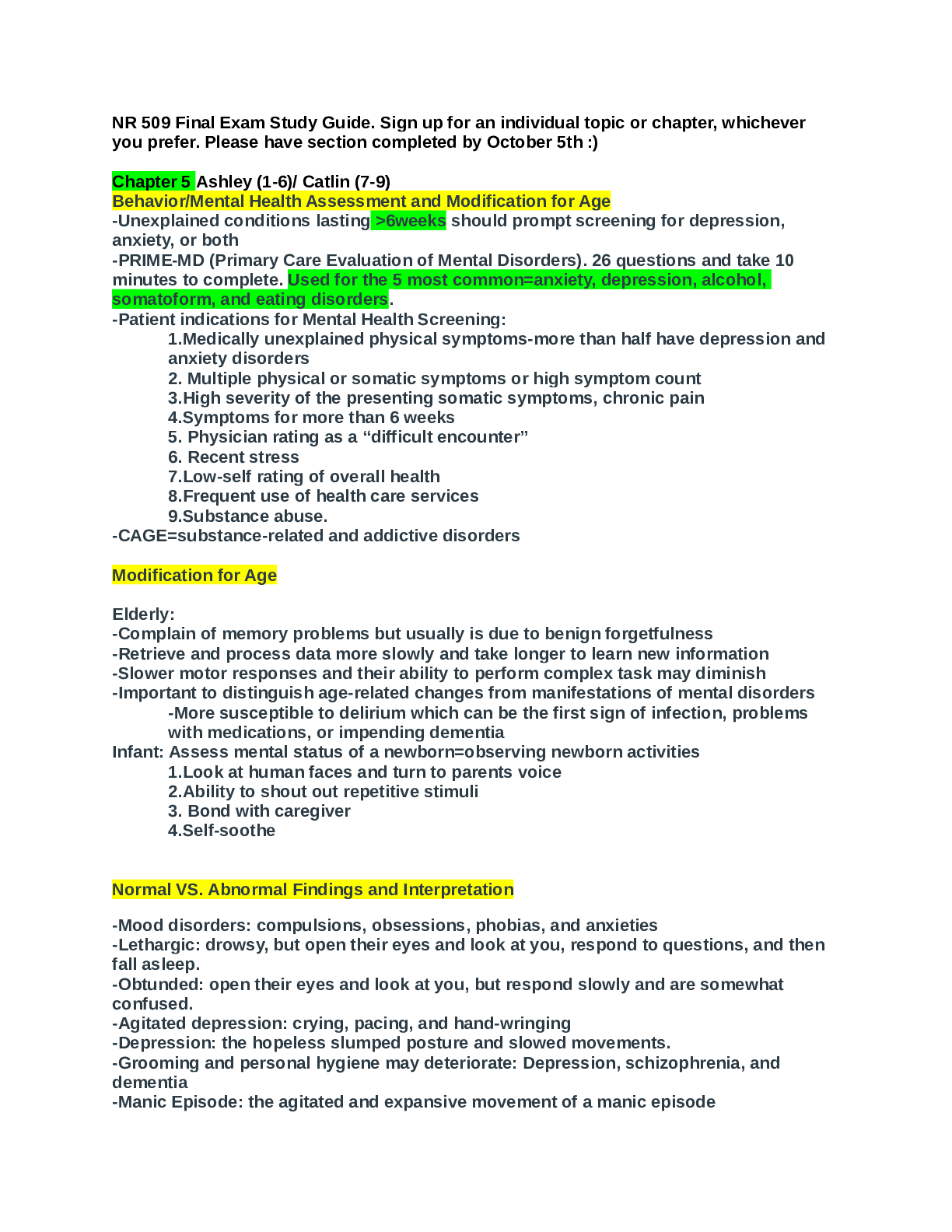NR 509 Final Exam Study Guide. Sign up for an individual topic or chapter, whichever
you prefer. Please have section completed by October 5th :)
Chapter 5 Ashley (1-6)/ Catlin (7-9)
Behavior/Mental Health Assessment and Modification for Age
-Unexplained conditions lasting >6weeks should prompt screening for depression,
anxiety, or both
-PRIME-MD (Primary Care Evaluation of Mental Disorders). 26 questions and take 10
minutes to complete. Used for the 5 most common=anxiety, depression, alcohol,
somatoform, and eating disorders.
-Patient indications for Mental Health Screening:
1.Medically unexplained physical symptoms-more than half have depression and
anxiety disorders
2. Multiple physical or somatic symptoms or high symptom count
3.High severity of the presenting somatic symptoms, chronic pain
4.Symptoms for more than 6 weeks
5. Physician rating as a “difficult encounter”
6. Recent stress
7.Low-self rating of overall health
8.Frequent use of health care services
9.Substance abuse.
-CAGE=substance-related and addictive disorders
Modification for Age
Elderly:
-Complain of memory problems but usually is due to benign forgetfulness
-Retrieve and process data more slowly and take longer to learn new information
-Slower motor responses and their ability to perform complex task may diminish
-Important to distinguish age-related changes from manifestations of mental disorders
-More susceptible to delirium which can be the first sign of infection, problems
with medications, or impending dementia
Infant: Assess mental status of a newborn=observing newborn activities
1.Look at human faces and turn to parents voice
2.Ability to shout out repetitive stimuli
3. Bond with caregiver
4.Self-soothe
Normal VS. Abnormal Findings and Interpretation
-Mood disorders: compulsions, obsessions, phobias, and anxieties
-Lethargic: drowsy, but open their eyes and look at you, respond to questions, and then
fall asleep.
-Obtunded: open their eyes and look at you, but respond slowly and are somewhat
confused.
-Agitated depression: crying, pacing, and hand-wringing
-Depression: the hopeless slumped posture and slowed movements.
-Grooming and personal hygiene may deteriorate: Depression, schizophrenia, and
dementia
-Manic Episode: the agitated and expansive movement of a manic episode
Read More


